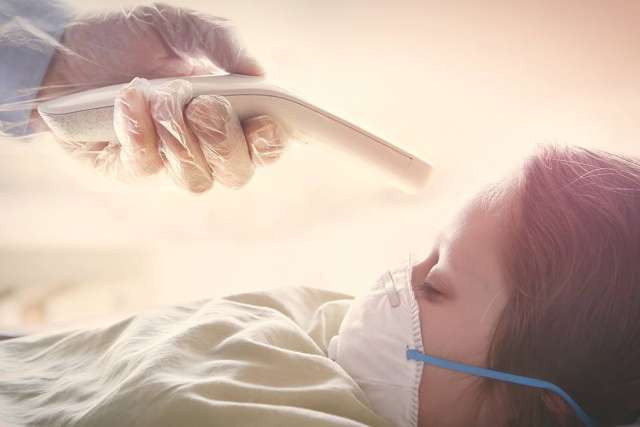A new illness affecting kids has been linked to COVID-19. Doctors have discovered that some children may develop a rare but dangerous medical condition – multisystem inflammatory syndrome (MIS-C) – after being exposed to the novel coronavirus.
So far, only 2% of all confirmed COVID-19 cases in the United States are in children. When kids do get sick, they usually have mild symptoms.
However, a small number of children can develop MIS-C weeks after being exposed to the novel coronavirus, whether they exhibited symptoms of COVID-19 or not.
What is multisystem inflammatory syndrome?
MIS-C is an overreaction of the immune system, which causes inflammation (irritation and swelling) in multiple organs. Experts liken it to another rare childhood illness, Kawasaki disease, that also produces internal inflammation.
At its most severe, MIS-C damages vital organs, causes organ failure and can lead to shock (sudden drop in blood pressure). MIS-C can involve the following organs:
- Brain
- Digestive organs
- Eyes
- Heart
- Kidneys
- Lungs
- Skin
What are the signs of multisystem inflammatory syndrome in kids?
In some cases of MIS-C, families didn’t know their children had any exposure to the novel coronavirus. So, it’s important to keep an eye out for signs of the syndrome. Contact your health care provider if your child has symptoms which include:
- Fever
- Abdominal pain, vomiting or diarrhea
- Rash
- Bloodshot eyes
- Neck pain
- Seeming overly tired
- Red, cracked lips or bumpy tongue
- Swollen hands and feet
Signs your child needs emergency care include:
- Severe abdominal pain
- Trouble breathing
- Chest pain or pressure
- Bluish tone in face or lips
- Trouble staying awake or waking up
How is MIS-C diagnosed?
Your health care provider will run tests to assess the function of organs and look for markers of inflammation. Tests may include:
- Blood tests
- Echocardiogram (an ultrasound of the heart)
- Abdominal ultrasound
- Chest x-ray
How is multisystem inflammatory syndrome in children treated?
The good news is that MIS-C is treatable and nearly all children recover. The primary treatment is intravenous immunoglobulin (donated antibodies). Doctors may also use steroids to calm the immune system and lower inflammation.
How can I protect my kids from COVID-19 and MIS-C?
Experts are still learning about the new syndrome. They don’t know why some children get it and others don’t.
Protect children from MIS-C by following simple strategies that prevent COVID-19 infection. To stay safe, have children follow these measures:
- Stay home. Only go out when it’s essential (for example, for medical care).
- Avoid contact with anyone outside of your household.
- Wear a mask when out in public, even outdoors.
- Avoid touching your eyes, nose and mouth.
- Wash hands often with soap and water for at least 20 seconds or use hand sanitizer with at least 60% alcohol.
Contact your health care provider if you’re concerned your child may have COVID-19 or MIS-C. If your child has emergency symptoms, seek immediate care at your local hospital. Stay up to date on the latest coronavirus information from UCLA Health.
